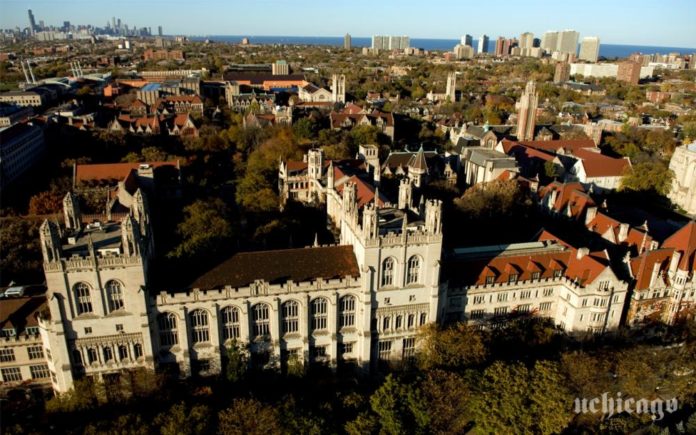Undergraduate students pay over $62,000 per year, in tuition alone, to attend the University of Chicago. While 45% of the undergraduate population at the University is White, White Professor Rebecca Journey will teach a class during the Winter term titled, “The Problem of Whiteness.”
Race-peddling is not new at U of C. University of Chicago student Daniel Schmidt wrote a powerful article about woke student organization UChicago United’s “disorientation” event “Race @ UChicago” that specified no Whites were allowed to attend.
Schmidt shared details of the upcoming class to Twitter.
The course is offered through the Critical Race and Gender Studies Program which states:
With the founding of a new Department of Race, Diaspora, and Indigeneity, the Critical Race and Ethnic Studies (CRES) program will transition to a new major/minor in Race, Diaspora, and Indigeneity (RDI). The College Class of 2025 will be the last class with the option to complete a CRES major or minor. The RDI program of study and requirements will appear in the 2023–24 catalog.
The BA program in Critical Race and Ethnic Studies (CRES) offers an interdisciplinary curriculum that leads students to examine both the processes through which members of the human population have been constructed as racial and ethnic groups, and the political, historical, social, and cultural effects of this constitution. It trains students to think critically and comparatively about the varying ways in which race and ethnicity have been constructed in different parts of the world and in different historical periods. Focusing on conquest, subjugation, genocide, slavery, segregation, migration, and diasporas, as well as resistance to these historic and contemporary practices of subjugation, CRES prompts students to examine the political, social, and cultural practices and institutions of minority or marginalized populations in pre-colonial, colonial, and postcolonial settings. These populations include, for example, Indigenous peoples in the Americas, Africa, Australia, and elsewhere who have been subjugated to subaltern positions by colonizers in their own homelands, and populations across the Americas who originated in Africa, Asia, Europe, the Caribbean, Latin America, as well as diasporic communities therein who have been subject to enduring global processes of racialization and its material impact.
The program enables students to understand not only the historical emergence of race and ethnicity but also the conditions that have contributed to the persistence of these ascriptions in various polities, especially as they affect access to education, to the job market, and to welfare services, as well as participation in politics, in power, in the national economy, and in the arts.
A degree in CRES offers training designed to develop fundamental skills in critical thinking, comparative analysis, social theory, reading practices, and research methods regarding social classifications and cultural expressions. A student who obtains a BA in CRES will be well prepared to pursue graduate studies in the humanities, the social sciences, law, medicine, public health, social work, business, or international affairs, as well as in education, journalism, politics, or creative writing.
The program describes The Problem of Whiteness course:
CRES 25030. The Problem of Whiteness. 100 Units.
Critical race theorists have shown that whiteness has long functioned as an “unmarked” racial category, saturating a default surround against which non-white or “not quite” others appear as aberrant. This saturation has had wide-ranging effects, coloring everything from the consolidation of wealth, power and property to the distribution of environmental health hazards. Yet in recent years, whiteness has resurfaced as a conspicuous problem within liberal political discourse. This seminar examines the problem of whiteness through an anthropological lens, drawing from classic and contemporary works of critical race theory. Attending to the ways in which various forms of social positioning and historical phenomena intersect in the formation of racial hierarchy, we will approach whiteness as a “pigment of the imagination” with worldmaking (and razing) effects.
There does not, however, appear to be a “problem” with the tuition brought in from the school’s White population.




